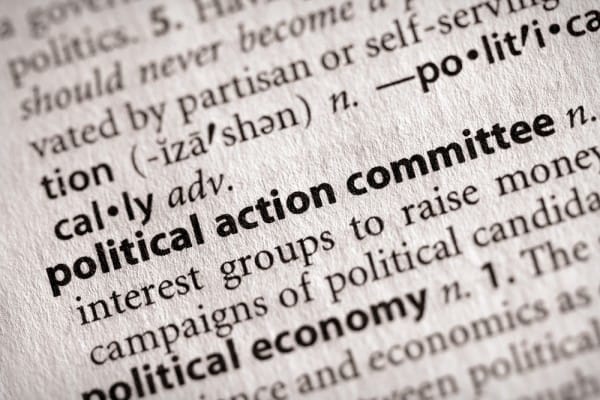PAC Spending in Elections Leaves Little Voice for Voters


Credit: Mark Poprocki / Shutterstock.com
Money in politics is rising to the fore as one of the key issues worth evaluating in American political discussion. Political Action Committee (PAC) spending has doubled over the past 7 election cycles and these organizations find themselves at the center of this discussion, as the campaign spending that these organizations undertake cloud transparency in campaign finance.
OpenSecrets.org compiled data on PAC contributions to federal candidates, categorized by industry. The rising amount of money flowing through PACs may be one of the many factors that fuel the fire of partisan politics in the capitol.
Here are 5 illuminating trends in PAC spending:
1.) From 2000 to 2012, most PAC spending by industry has doubled; total PAC spending has increased by more than double.
2.) PACs from Agribusiness, Construction, Energy, Miscellaneous Business, and Transportation, favored Republican candidates in every election cycle. PAC funding overall was also strongly in favor of Republican campaigns.
3.) Lawyer, Lobbyist, and Labor Industry PACs always favored Democratic campaigns.
4.) Defense, health, and other single issue PACs almost always supported the winning presidential candidate. These organizations favored Republican campaigns every year from 2000 until 2008. In 2008, when President Obama was elected to his first term, PAC money shifted with the popular vote, finding its way back to the Democratic side of the aisle. Their funding continued its Democratic support in 2010 as the party held the White House in the off election year. In 2012, however, the PACs from these industries favored Mitt Romney, marking their first departure from a winning candidate.
5.) Overall PAC spending almost always favors the party who wins the White House -- 2012 was the exception.
In 2012, PAC spending brought $247.4 million to Republican candidates, and $205 million to Democratic candidates. It was the only election cycle on record where the candidate with the most supporting PAC money did not win the White House.
This departure can lead one to wonder what made 2012 different. Perhaps the deeper question is not what happened with the system in 2012, but rather, is a system that consistently equates large sums of money to political victory acceptable?
The early numbers on PAC spending for the 2014 election cycle place Northrop Grumman as the highest donor thus far.
The global security company is one of the leading producers of drones, and other military-based technology. At the moment, it is the PAC responsible for the most donations to the Republican party, and fourth most to Democratic campaigns.
With PAC money so closely related to success and important to running a campaign, how much voice does the individual voter have? Even if the voter does have a voice in the fight between the two major parties, is there room for meaningful change within the current system of campaign funding and elections?



